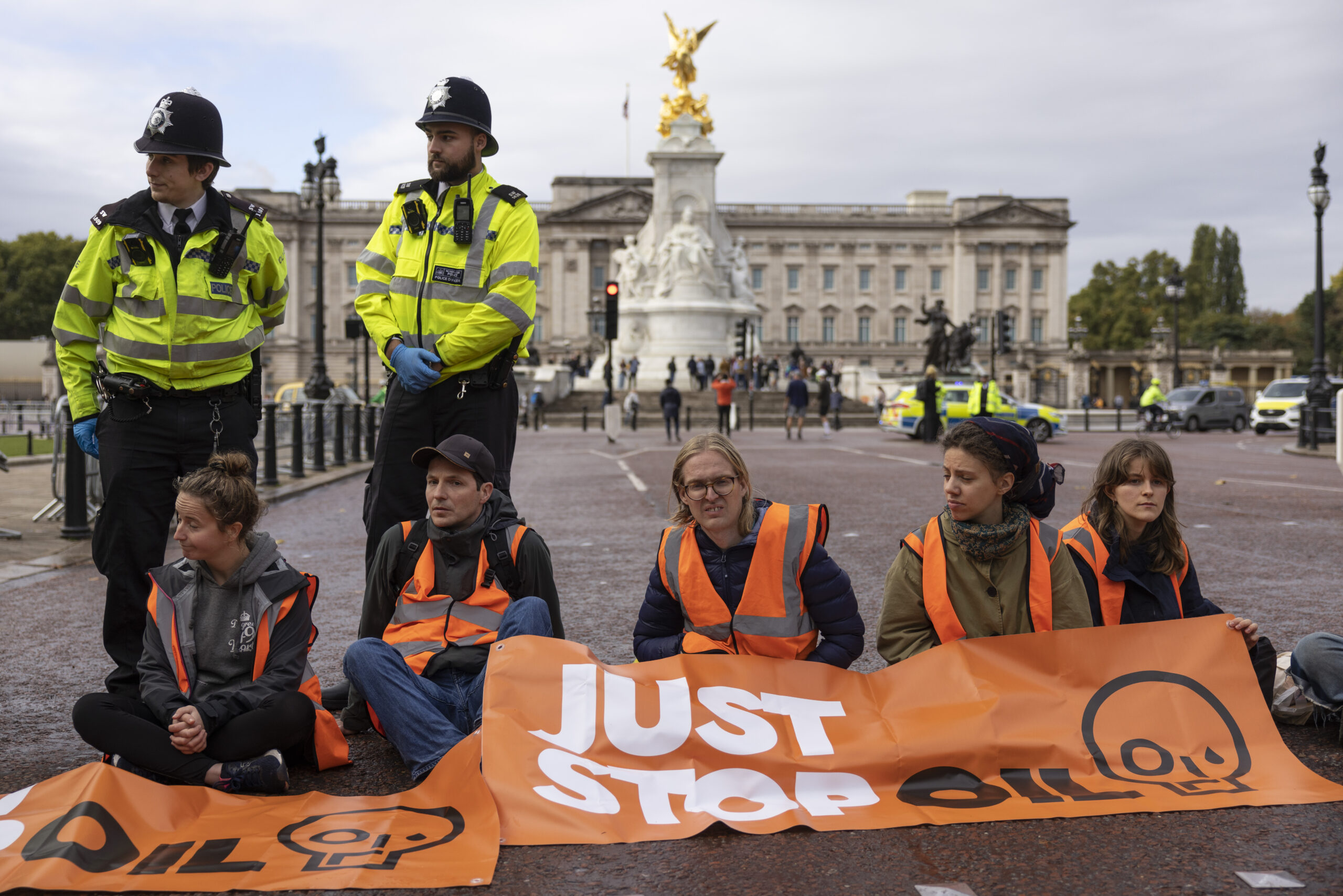
An inquiry has been promised in the UK into the arrest and detention of three journalists covering this week’s protests on the M25 by the climate change campaign group Just Stop Oil. Downing Street criticised the heavy handed policing for interfering with press freedom, but has made no sign that the government intends to give up its attempts to further expand police powers at demonstrations.
Meanwhile, at the Cop27 climate summit in Sharm el-Sheikh, Egypt, concern is mounting over the life of Alaa Abd el-Fattah, a British-Egyptian activist on hunger strike in jail. The pro-democracy campaigner was convicted last year of “spreading false news” in a Facebook post, a charge that has been used against hundreds of others arrested and detained before the conference. He has been sentenced to five years in prison and denied consular access from British diplomats.
The two situations of course involve different magnitudes of injustice and suffering. Yet they are linked by a common thread: climate change. It is a connection that goes to the heart of what many climate activists have been stressing for years: that tackling climate change cannot be separated from the need to confront wider social and racial injustice. “There is no justice without social justice and human rights,” tweeted the activist Greta Thunberg this week for example, alongside a Cop Civic Space petition calling for Egypt to “urgently address arbitrary restrictions on civil society”.
This struggle is being borne out both within the climate talks and beyond them. Inside the negotiating halls, as well as concern for Fattah, tensions are rising over the need for developed nations to compensate poorer counterparts for the devastation that historical emissions are already causing. Even existing money promised to help countries stem climate change’s spread and adapt to its challenges is not being paid in full; analysis from the climate website Carbon Brief shows that the US, UK and others all falling short of paying their “fair share”.
“It is impossible to view climate change as a separate issue from human rights,” Dr Laurence Wainwright, a lecturer at Oxford University’s Smith School of Enterprise and Environment, told the New Statesman. “Its consequences are being felt most by those who have contributed least to the problem.”
Back in the UK, it is not surprising that the government’s recent push to extend anti-protest powers has coincided with the climate movement’s rise. Whatever you think of Just Stop Oil’s methods, their call for the government to end “all new licenses and consents” for fossil fuel development tallies with the warnings from UN climate scientists and the International Energy Agency. Yet the government has refused to listen. From issuing more oil and gas licenses, to upholding the ban on onshore wind and failing to press ahead with a home insulation plan, government policies fly in the face of the existential risk climate change poses.
Those who stand to gain from protecting the status quo will of course push back (note the assertion by David Lloyd, the Conservative Hertfordshire police and crime commissioner, that the media should not give so much air-time to the Just Stop Oil protesters). But Cop27 is revealing how solidarity across justice movements can provide mutual support. Climate activists are helping to push Egypt’s human rights record into the limelight, and opposition to the UK government’s protest crackdown amplifies the climate campaigners’ message.
A Just Stop Oil spokesperson told the New Statesman that the group “stand[s] in solidarity with those resisting oppressive regimes and the genocidal policies of governments in the pockets of the fossil fuel industry”. Meanwhile, Jun Pang from the human rights campaign group Liberty added that demands for climate justice are “demonstrating the importance of protest in achieving transformative social change”.
Not only can climate activism not be silenced, this week has shown how it is helping to amplify resistance to injustice around the world – and why leaders around the world must listen.
[See also: Cop27: What is on the agenda in Egypt?]





